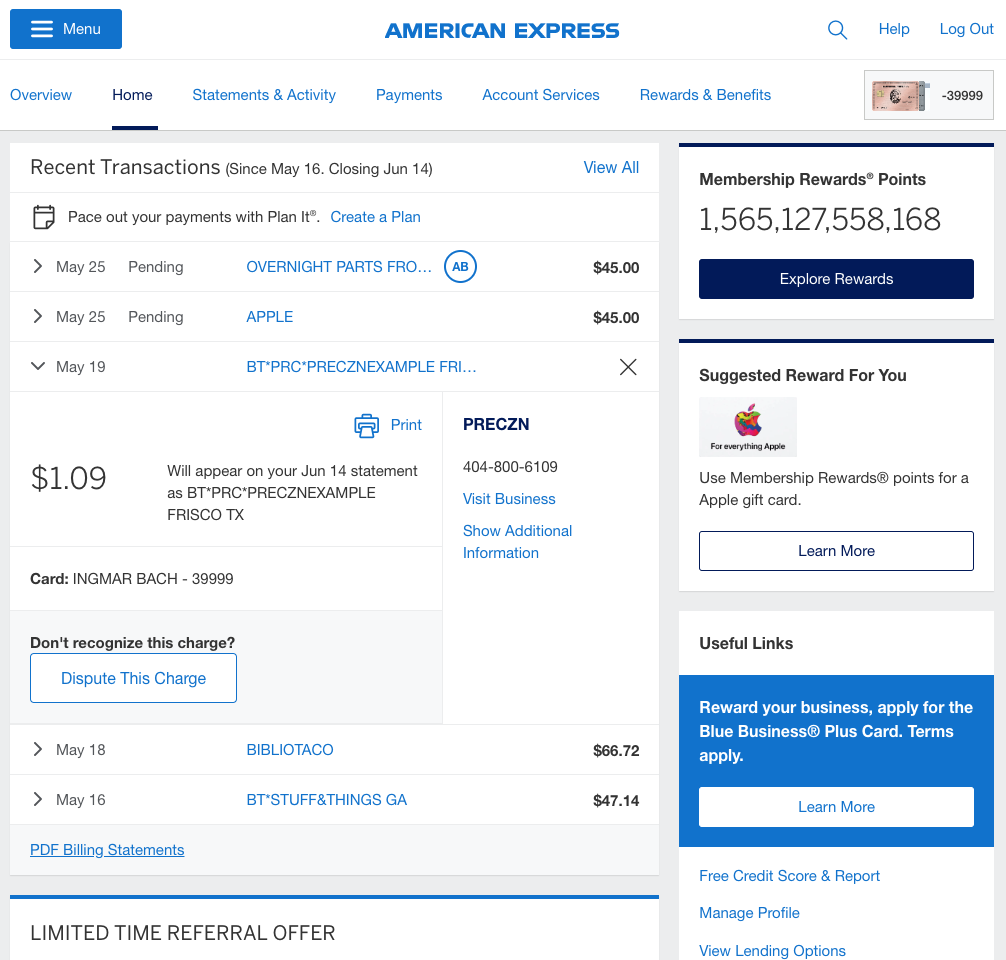Dynamic Statement Descriptors
Send custom statement descriptors with your transactions
Statement descriptors display information to a cardholder on their statement or in their online banking transactions. This can be useful to help a customer identify a charge made to a merchant on your platform.
In order to send custom descriptors per transaction, you may need to configure the ability with your ProcessorDynamic Descriptors may need to be enabled with your processor prior to being able to send custom descriptors. This will likely include setting a static prefix with your processor.
Processor Connections that currently support Dynamic Statement descriptors include:
- Adyen & Adyen for Platforms
- Braintree
- MerchantE
- Stripe Connect
Once you've configured the ability to send Dynamic Descriptors with your processor, you can utilize this functionality by including the merchantInfo resource and associated nested resources with your transaction call.
Processors may require multiple nested resources to successfully send Dynamic DescriptorsSome processors may only send a Dynamic Descriptor if requisite nested resource objects are sent in addition to the name included in merchantInfo
{
"merchantId": "mid_2zyd88xrnr90xskmjmqpd0x1vj",
"type": "sale",
"payment": {
"number": "4321000000000012",
"cvv": "123",
"expiration": "1235"
},
"amount": 145,
"merchantInfo": {
"name": "PRC*EXAMPLE",
"phone": "8885551234",
"mcc": "6012",
"city": "New York",
"region": "NY",
"postal": "11111",
"url": "example.com"
}
}
For Processors who do not accept or otherwise are not enabled for Dynamic Descriptor, Preczn will still pass the information
Some Issuers may not display Dynamic DescriptorsSome card issuers will not display Dynamic Descriptors on their statements- instead displaying only the static descriptor configured with the processor or a combination of static descriptor with sub-information containing the dynamic Descriptor
Updated 5 months ago

